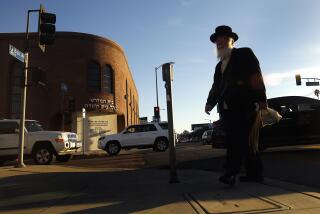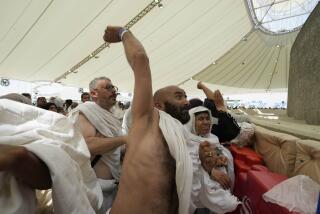Ramadan is ending this week. How communities decide when to celebrate
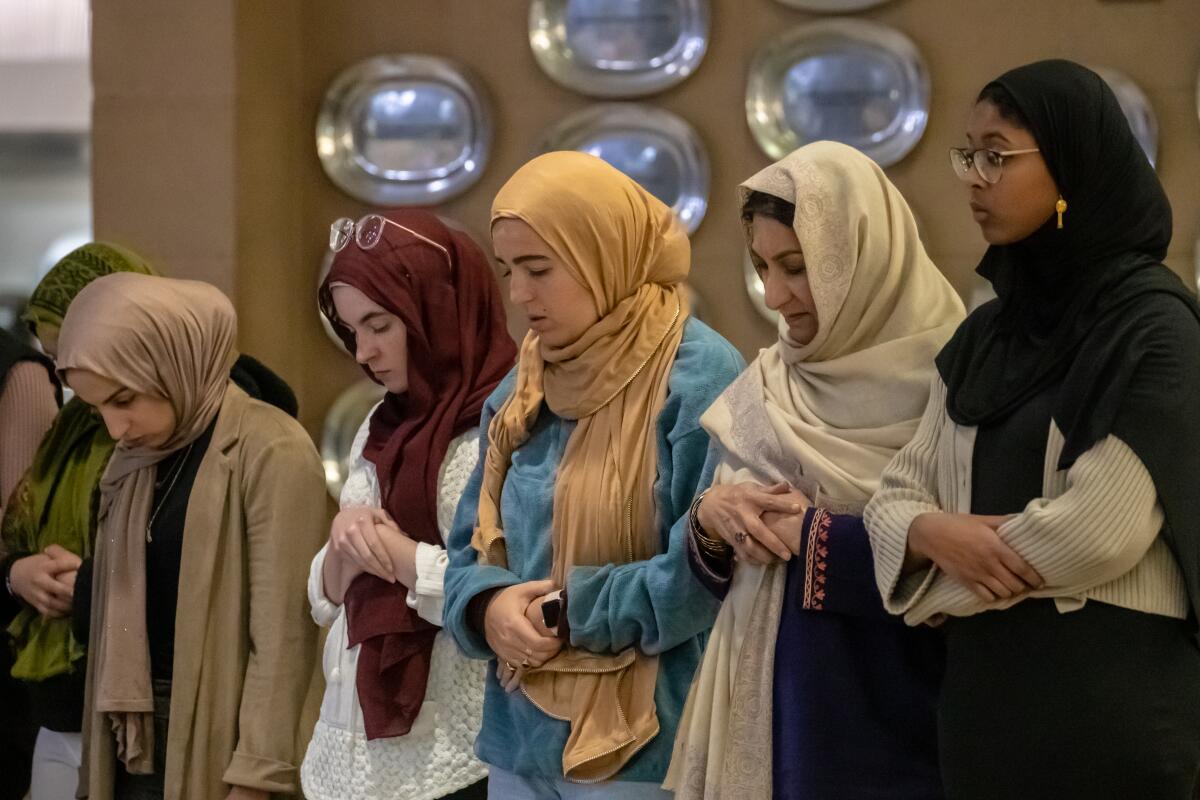
- Share via
Muslim communities are preparing to end the holy month of Ramadan and celebrate the holiday Eid al-Fitr, but the specific day on which each community celebrates will depend on how its congregation observes the lunar calendar.
Ramadan is the month on the Islamic lunar calendar during which Muslims fast from sunrise to sunset, while also putting a greater focus on worship, charity and good deeds.
After a month of fasting, the community celebrates Eid al-Fitr, which means feasting, festival or breaking the fast.
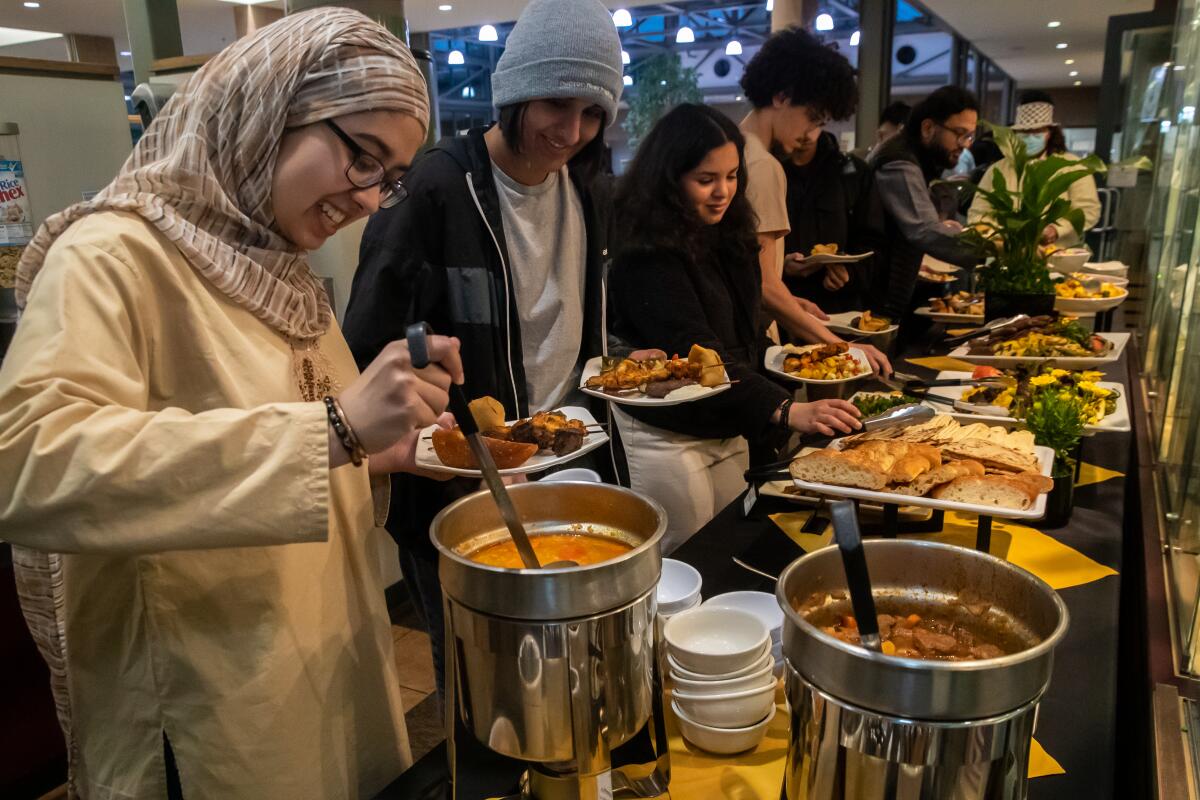
The Council on American-Islamic Relations said that on or about Wednesday, Muslims in America will mark the end of Ramadan with communal prayers around the country. The Eid al-Fitr celebrations in Southern California are expected to be more muted, local leaders said, in light of the war in Gaza.
To determine the exact date and time of Eid al-Fitr activities, CAIR advised consulting local mosques or Muslim community leaders.
The varying dates are the result of two schools of thought about when to mark the start and the end of Ramadan, said Omar Ricci, spokesperson for the Islamic Center of Southern California.
Ramadan lasts one lunar cycle, measured from new moon to new moon. It is over when a crescent moon appears after the second new moon.
One way to determine the end of Ramadan is to consult a record of the lunar cycles to know when the crescent moon will be visible — actually seeing the moon phases isn’t necessary. That’s how the Islamic Center of Southern California does it.
Another way, Ricci said, is to directly sight the crescent moon that emerges after the second new moon.
“Those [two] schools of thought are held by Muslim communities here in Los Angeles, [and] what this means is some communities start Ramadan differently from other communities,” Ricci said.
The solar eclipse that occurred in the early afternoon Monday happened to coincide with the second new moon of Ramadan in California. Eclipse cartographer Michael Zeiler told USA Today that the moon phase would be no more than 5 to 6 hours old at sunset, making it impossible to see the crescent that evening.
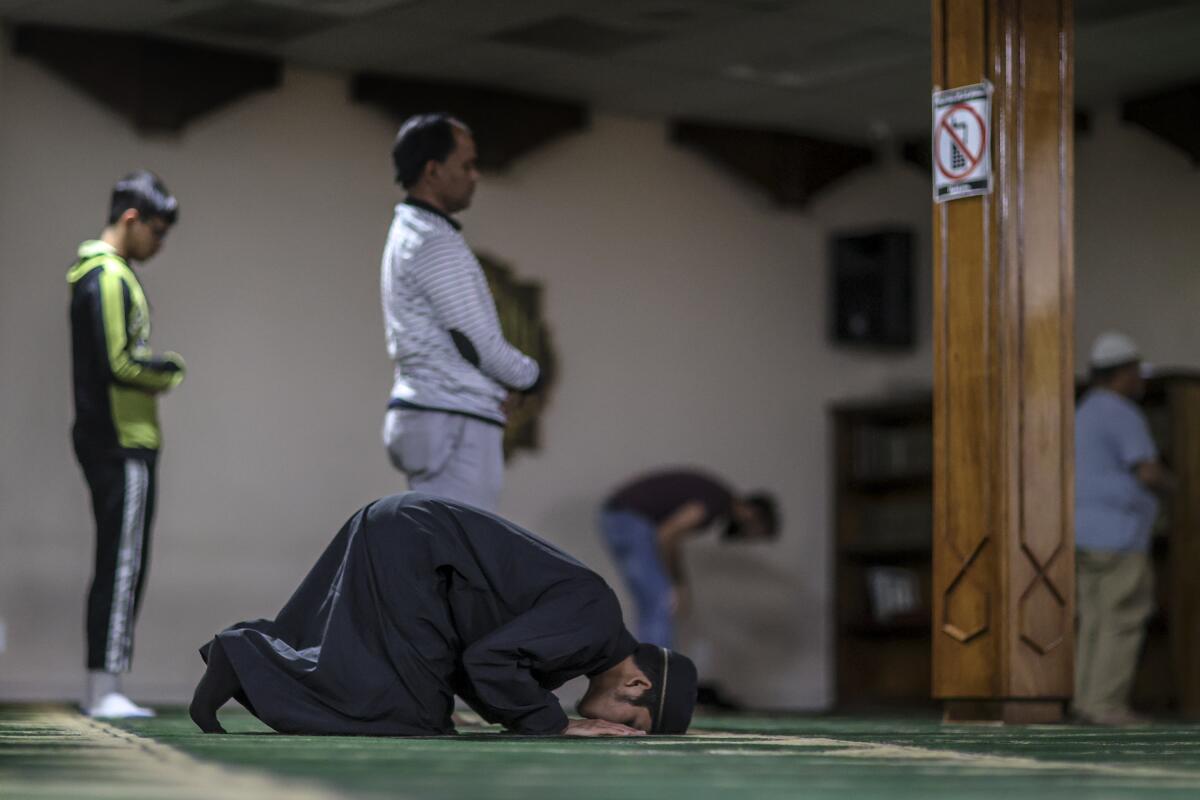
Muslim leaders, however, said the eclipse and its timing were irrelevant. The eclipse doesn’t change the beginning or end of the month of April, Ricci said, and the same rule applies to the month of Ramadan.
“Muslims see [the eclipse] as a special occurrence or a special event and there are special prayers that are offered up during the eclipse — that’s tradition,” he said. “But that’s separate and apart from Ramadan.”
The transition from one day to the next for the Muslim community is at sunset, he said.
“The sunset is the demarcation point between one day to the next, so starting tonight at sunset we’ll mark the transition out of the month of Ramadan and for the first day of the new month,” Ricci said Tuesday.
The Los Angeles area chapter of CAIR lists Eid al-Fitr festival events in Los Angeles on its website.
Local Muslim leaders say some Southern California mosques have scaled back or adopted a more somber tone for Eid celebrations this year.
For example, the Islamic Center of Yorba Linda last month announced it was canceling its annual Eid festival and holding a conference instead to raise awareness about continued violence in Gaza, “in light of the devastating loss of lives and widespread destruction of infrastructure in Palestine.”
“The typical fanfare surrounding Eid is subdued, with fewer announcements of celebratory picnics and other events,” said Hussam Ayloush, executive director of CAIR’s office in Los Angeles.
“There is no doubt everybody is feeling a little bit down for the last six months. Many of us know a person or a family who has lost relatives in Gaza,” Ayloush said. “Even if we wanted to celebrate, it’s hard to fully celebrate when surrounded by people crushed over the loss of their loved ones.”
Ayloush said many community members have voiced feeling guilt that they are safe, with food and drink and loved ones around them, while Palestinians in Gaza are facing unprecedented death and destruction.
“We won’t over indulge, we will be more measured, certainly a toned down celebration mood, because no one’s in the mood. But I don’t want us to be in a state of perpetual mourning,” Ayloush said.
More to Read
Sign up for Essential California
The most important California stories and recommendations in your inbox every morning.
You may occasionally receive promotional content from the Los Angeles Times.

